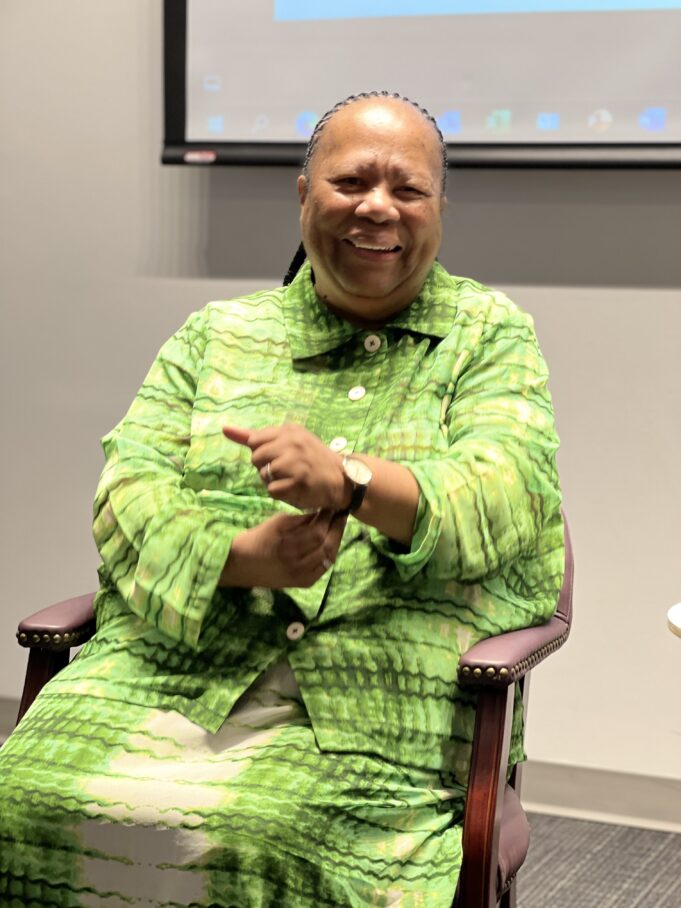Dr. Naledi Pandor is South Africa’s Minister of International Relations and Cooperation. From March 18-26, she embarked on a working visit to the U.S. and Jamaica. During her visit, she was scheduled to engage in high-level discussions with various stakeholders, including members of Congress.
She also addressed a reception in honor of anti-apartheid activists and the South African diaspora, on the campus of historic Howard University. She spoke at the Center for African Studies at the HBCU on March 20

Though her busy schedule was also slated to include a visit with the Minister of Foreign Affairs and Foreign Trade of Jamaica—where they are co-chairing the Caribbean Community and Common Market (CARICOM) and a lecture at the University of the West Indies—the media was more prone to controversy than dealing with the substance of her visit to the region.
The answers that so far have received the most attention were Pandor’s responses to questions about South Africa’s case presented to the ICJ accusing Israel of genocide in Gaza, support of Iran, and legislation on reassessing the U.S.-South Africa relationship being considered in the House Foreign Affairs Committee.
“I think they (members of U.S. Congress) are making conclusions about South African international relations that are not actually speaking to us,” she said. “Legislators make conclusions about South Africa’s international relations without necessarily speaking to us is very troubling.”
She added, “Because if I were to make a definitive statement about a country and its policy, I would at least speak to its policymakers first and attempt to understand (what) the cause if any of an emerging dissonance might be.”
In her professorial manner, as a former educator, she also said, “And once I have understanding, I would either say my perception is confirmed or is actually challenged by the reality I’ve come to understand.” Additionally, she said that to seek to punish South Africa because of a disagreement “is a most unfortunate response.”
As of presstime, the substance of Dr. Pandor’s meeting with members of Congress had not been widely reported, she did respond to Dan Baer, senior vice president for policy research and director of the Europe Program at the Carnegie Endowment, when he called Iran an “authoritarian regime.”
Dr. Pandor stated that she doesn’t have that “definition” in her “playbook.” Dr. Pandor, who considers herself an “activist,” went on to say, “I do have a concern about women and their rights and this is something that I discussed particularly with my colleague the foreign minister (of Iran).”
She explained that what she thinks her country must do is not close off engagement with any country. “(We) use our own democratic success as an example to others to say this actually works.”
She also spoke on reforming the United Nations, explaining that the international body was established when many African countries were still under the dominance of colonialism and there was apartheid in South Africa.
“Now that we have many more independent states, African states that are a significant presence in the United Nations, we believe that we’ve got to rethink particularly its key mechanisms and structures.”
Dr. Pandor said South Africa advocates for a reconfigured UN Security Council. She argued that the Security Council in its current formation has clearly failed at exercising a mandate for peace. The body not only needs a new composition but also needs “the functioning and the capacity associated with having a security council.”
For the Security Council to function holistically, an “African presence as permanent members” is necessary, along with India, the world’s most populous democracy, she pointed out.
While in Washington, Dr. Pandor also sat down with Al Jazeera to discuss her country’s stance on the Palestinian plight and its relationship with the U.S. “There is almost an implication that when America holds a particular position, South Africa must follow.”
She said she finds it interesting that other countries that hold the perspective that South Africa holds are not being dealt with in the way her country is.
“I don’t know if it’s because we’re Africans or some other reason. It might be the fact of the response we’ve taken with respect to the current war of Israel being visited upon the people of Palestine, most harshly and painfully.” She added, “And the fact we’ve approached the International Court of Justice (ICJ), which maybe causing some discomfort.”
She also stated another bone of contention is the fact that, unlike Global North countries, South Africa continues to talk to both Russia and Ukraine.
Follow @JehronMuhammad on X, formerly Twitter.













